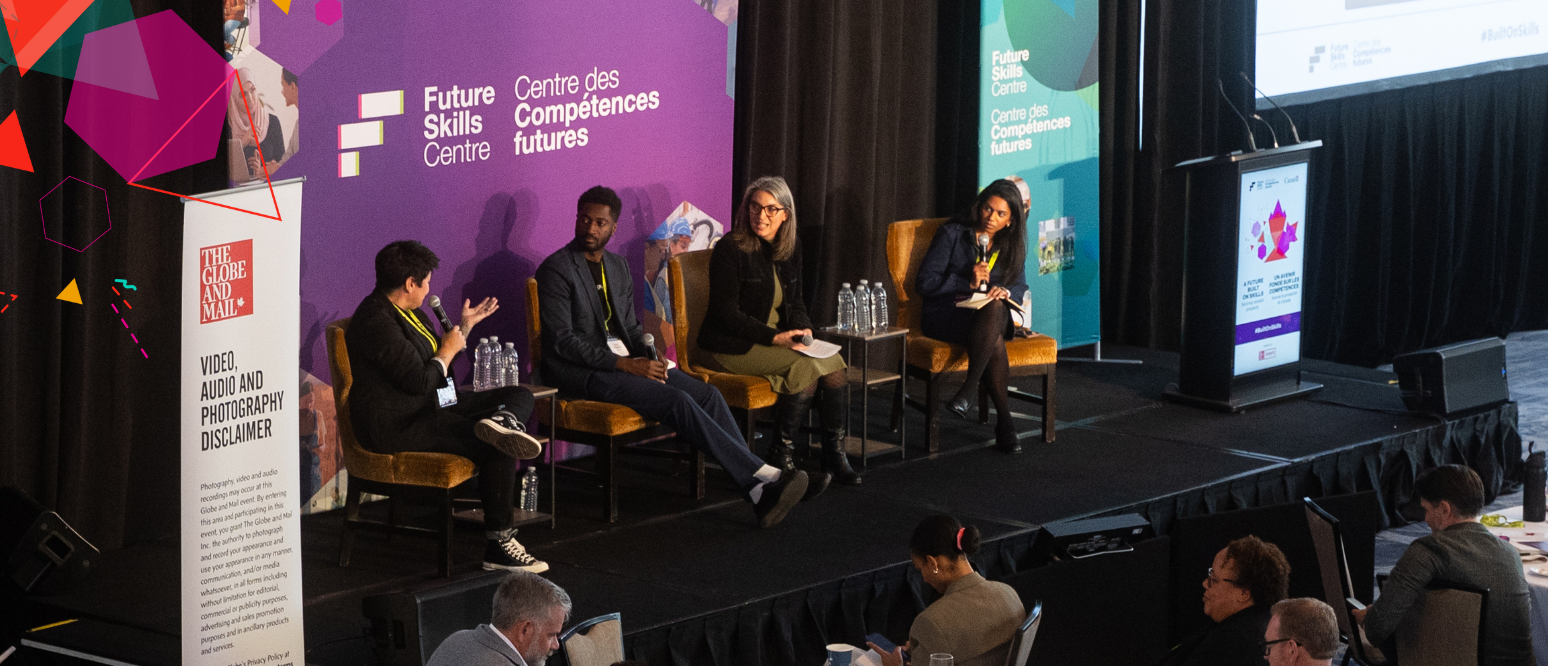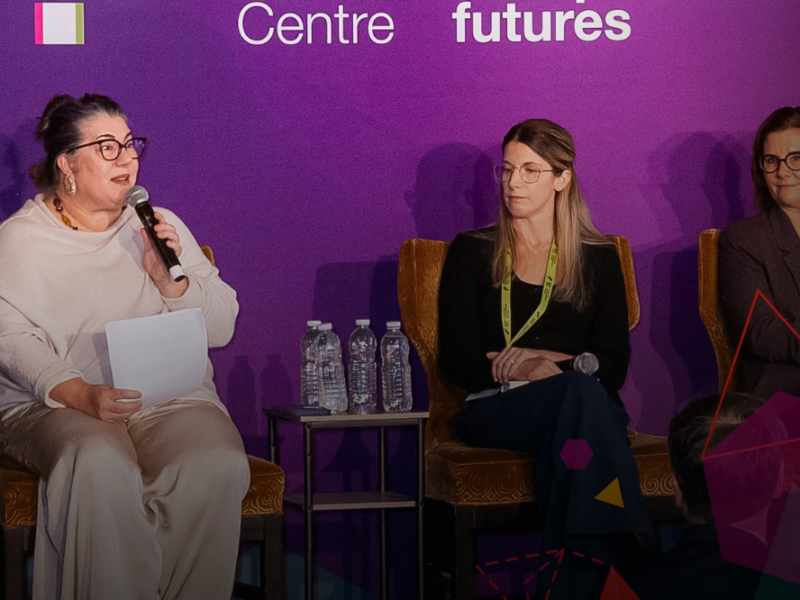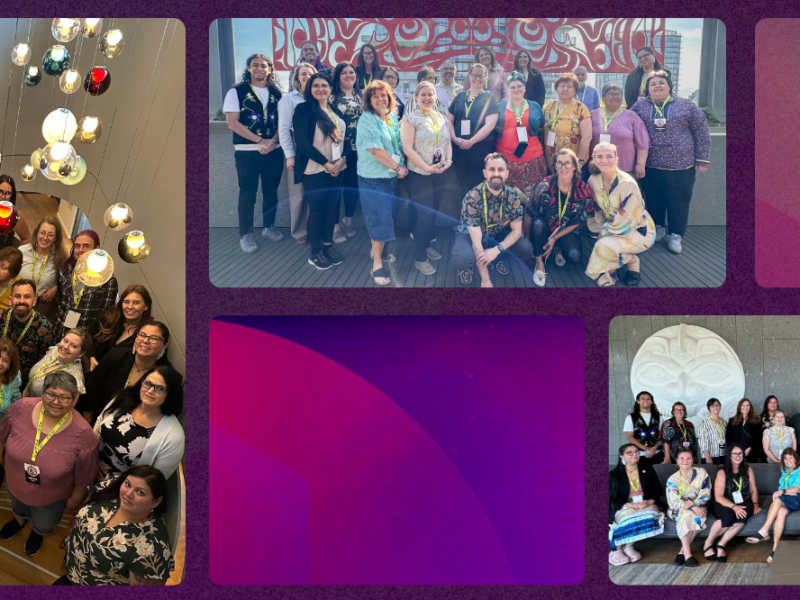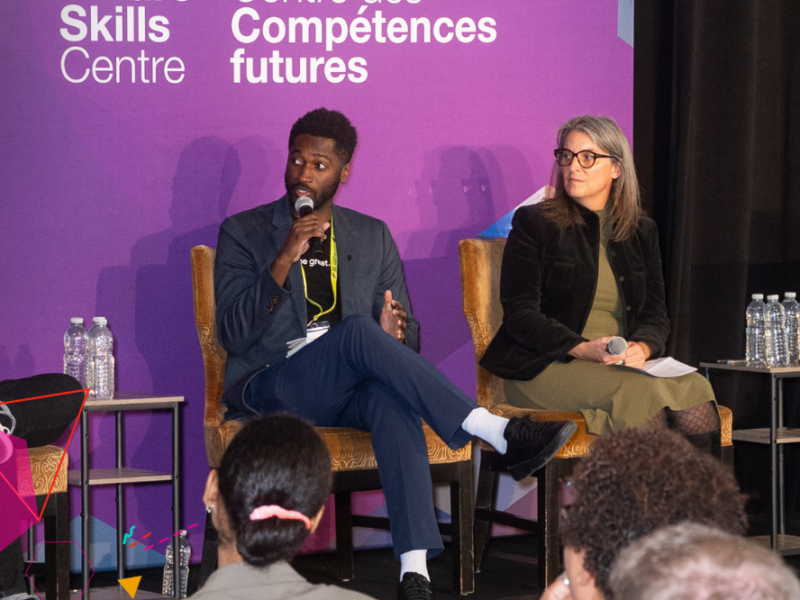Belief, Inclusion, and Building a Future on Skills

When I think about Canada’s future and how we can build it on skills, I don’t start with education or credentials, I start with belief. That’s the message I shared at A Future Built on Skills, where I joined other changemakers to talk about what it really takes to prepare our workforce for the future.
For a long time, no one believed in me. I grew up Indigenous, raised by queer parents in the 1980s, and I live with a rare condition that makes me severely allergic to light. As a kid, I was bullied and isolated. I didn’t finish high school because I couldn’t face going back. I looked different, I came from a family that didn’t fit the mold, and I had a body covered in sores. Everywhere I turned, I heard the same message — I didn’t belong.
At 18 years old, I left home with no diploma, no connections, and no clear plan. I worked my way up in oil and gas, but even then, I had to fight twice as hard to prove myself. When I was laid off, I sent out resumes and heard them hit the bottom of the trash can. No one was hiring someone like me. So I decided to take a chance on myself.
That’s how Virtual Gurus was born, out of resilience and a need to create my own opportunity. I had no formal education, no business background, and no roadmap. But I was determined to build something that could open doors for others who, like me, had been left out of the system.
Today, I’m proud to be the first Indigenous woman in Canada to close a Series A funding round, the first in my family to graduate from Harvard, and the first to lead a successful exit. But the truth is, I didn’t get here alone. Mentors, advisors, and allies believed in me when I was still learning to believe in myself. Their guidance and trust showed me that mentorship isn’t just about teaching, it’s about lifting others up and helping them see what’s possible.
That’s why I believe inclusion must be intentional. Too many hiring and funding systems are still built to exclude underserved communities, people who are rich in potential but shut out by design. We need to rebuild those systems to include, not exclude.
For me, that means shifting from gatekeeping to green lighting. I make it a personal goal at every event to introduce at least a few people from underserved backgrounds to others who can help them grow their networks. It’s a small act, but it creates ripples.
And while belief is powerful, it needs to be matched with action. Governments and organizations often talk about supporting Indigenous entrepreneurs, yet so many of us are still denied funding and resources. If we’re serious about inclusion, we need to walk the talk — to make sure programs, investments, and opportunities truly reach those they’re meant to serve.
Entrepreneurship has become my medicine. It’s how I’ve turned trauma into purpose, and how I’ve learned that skills aren’t just taught, they’re lived, shared, and believed in.
A future built on skills starts with believing in people, especially those who’ve been told they don’t belong. When we believe, include, and act, we build a future where everyone has the opportunity to thrive.
These remarks were shared at A Future Built on Skills, a national forum convened by the Future Skills Centre. Watch the full talk here →
The views, thoughts and opinions expressed here are the author’s own and do not necessarily reflect the viewpoint, official policy or position of the Future Skills Centre or any of its staff members or consortium partners.




